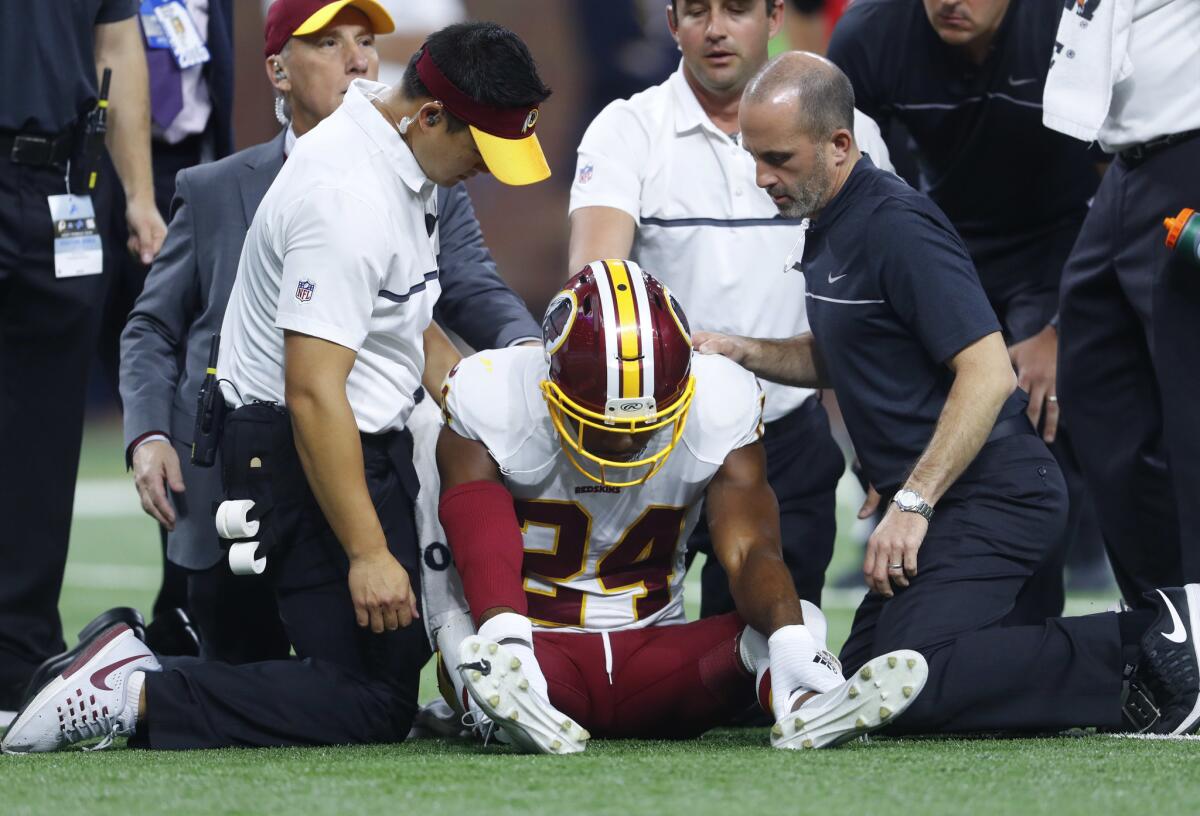Supreme Court leaves NFL concussion settlement in place

The U.S. Supreme Court declined Monday to review the settlement to concussion litigation between the NFL and retired players, clearing the way for payouts that could total hundreds of millions of dollars.
“This decision means that, finally, retired NFL players will receive much-needed care and support for the serious neurocognitive injuries they are facing,” Christopher Seeger, co-lead counsel for the retired players, said in a statement.
About 6,000 of the estimated 20,000 living retired players will be eligible for compensation over the deal’s 65-year life, according to experts for the NFL and retirees.
In a statement, the NFL said it is looking forward to implementing the settlement and providing “the important benefits that our retired players and their families have been waiting to receive.”
Seeger expects the benefits process to start in the spring.
The settlement includes payouts for a variety of conditions, such as Alzheimer’s disease and amyotrophic lateral sclerosis. The amounts will be adjusted based on the player’s age at diagnosis, seasons in the NFL and other factors.
Though the deal doesn’t limit what the NFL could pay out, individual awards are capped at amounts that range from $1.5 million for moderate dementia to $5 million for ALS, also known as Lou Gehrig’s disease.
Many of the payouts are projected to be lower. While the maximum payout for Alzheimer’s is $3.5 million, the averaged payout is expected to be $190,000 when experience and age are factored in.
The deal will also provide baseline testing for concussion-related problems and fund concussion research and education.
The settlement applies to all retired players -- other than approximately 140 who opted out and can sue the NFL on their own -- regardless of whether they participated in the litigation.
The family of former Buffalo Bills running back Cookie Gilchrist, who died in 2011, and a group of 31 players including Hall of Famer Charles Haley had petitioned the Supreme Court to review the deal.
Their concerns included the settlement’s treatment of chronic traumatic encephalopathy, known as CTE. The families of players who received a postmortem diagnosis of CTE after the deal’s final approval last year won’t be compensated for the disease.
The U.S. 3rd Circuit Court of Appeals rejected an appeal of the settlement, first agreed to in 2013, earlier this year.
The litigation started in 2011 with a lawsuit in Los Angeles Superior Court and grew to more than 300 cases before they were consolidated in U.S. District Court in Philadelphia.
ALSO
Dodgers re-sign closer Kenley Jansen to five-year, $80-million contract
Plaschke: Rams’ return to L.A. is officially an embarrassment. Coach Jeff Fisher needs to go — now
What we learned in the Rams’ 42-14 loss to the Atlanta Falcons
UPDATES:
9:30 a.m.: This article was updated with staff reporting.
This article was originally published at 8:25 a.m.
More to Read
Go beyond the scoreboard
Get the latest on L.A.'s teams in the daily Sports Report newsletter.
You may occasionally receive promotional content from the Los Angeles Times.











